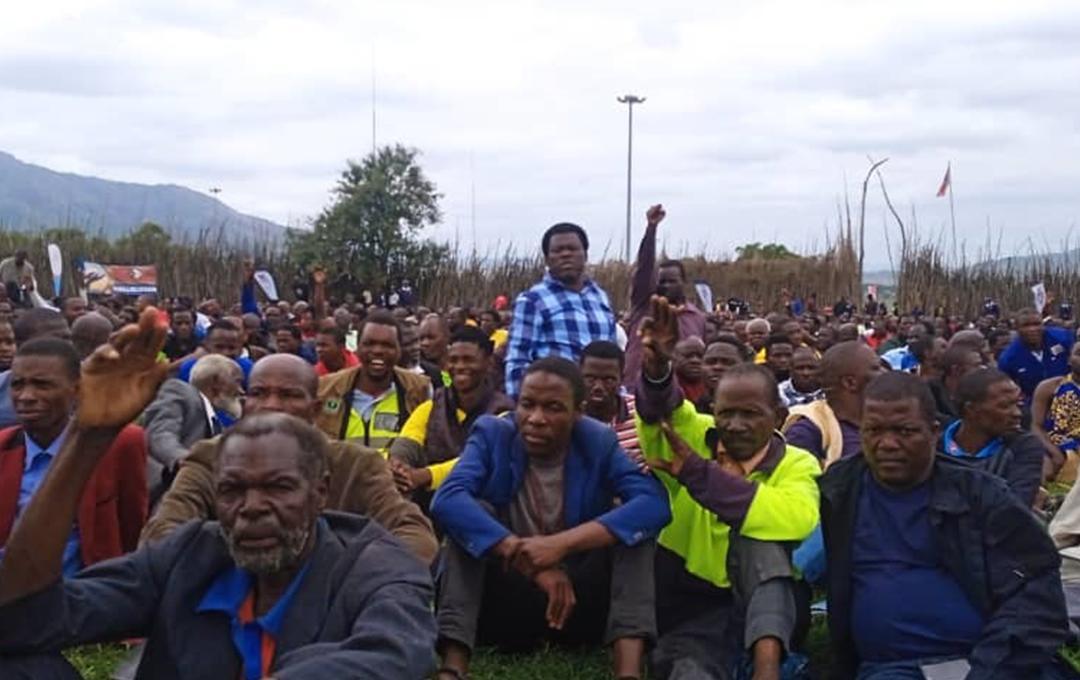Africa-Press – Eswatini. The year 2023 is now behind us.
It was a year of serious challenges globally, nationally and, especially, at personal levels. We continued to witness the war between Russia and Ukraine that shocked the world, as millions were displaced and thousands continued to be killed and maimed. Sudan also imploded when the two warring armies resorted to fight each other instead of dialogue to resolve their problems. The Hamas incident that happened in October, where over 1 000 Israelis were killed and some kidnapped to the Gaza Strip triggered a war in Gaza, where over 21 000 Gazians have perished. What continues to shock the world is the massacre of innocent children. In the midst of these conflicts, we have seen the paralysis of institutions such as the United Nations (UN) Security Council, UN General Assembly and the African Union (AU) among others.
It is sad that the world has forgotten the UN Charter; which states; “We the peoples of the United Nations determined to save succeeding generations from the scourge of war, which twice in our lifetime has brought untold sorrow to mankind, and to reaffirm faith in fundamental human rights, in the dignity and worth of the human person, in the equal rights of men and women and of nations large and small, and to establish conditions under which justice and respect for the obligations arising from treaties and other sources of international law can be maintained, and to promote social progress and better standards of life in larger freedom.”
The launch of the AU in Durban, South Africa, renewed hope that Africa would rise to her full potential for the sake of future generations. This was affirmed in the 2063 development agenda that, indeed, there was political will among African countries leaders, that the African people will reap the fruits of development, instead of being marred in conflicts, poverty and serious underdevelopment, which has caused thousands of young people to perish in the seas in search of better lives in well governed European countries.
Foundation
The AU’s Constitutive Act laid a solid foundation in its preamble statements when it asserted that: ‘We are determined to take up multifaceted challenges that confront our continent and peoples in light of social, economic and political challenges. We are guided by our common vision of a united and strong Africa, and by the need to build a partnership between governments and all segments of civil society in particular women, youth and the private sector, in order to strengthen solidarity and cohesion among our people. We are conscious of the fact that the scourge of conflicts constitutes an impediment to the socio-economic development of the continent and of the need to promote peace, security and stability as a pre-requisite for the implementation of our development and integration agenda. We are determined to protect and promote human and people, consolidate democratic institutions and culture and to ensure good governance and the rule of law’.
It is clear that these noble ideals, as articulated in the UN and the African Charter have not delivered peace and development. These critical institutions are not able to address the raging conflicts I have alluded to. West Africa has witnessed coups which the AU has failed to resolve. It seems the cold war era has returned, where countries’ relations are defined ideologically. In our country, two critical events stand out. The national elections were held against the backdrop of the 2021 civil unrest and were dubbed as a resounding success. It caused ruptures in the mass democratic movement, as some decided to lead their followers to participate in the elections in order to fight for democratic governance from within. The hope of flooding Parliament with progressives was dashed, as it was witnessed at Mandvulo Hall where there was no call for the release of the incarcerated former Members of Parliament, nor was there a call to engage in political dialogue to solve the political crisis facing the country. We also witnessed allegations of vote buying for Senate seats, which shocked the nation. The question being asked is, will these allegations be fully investigated?
There was also Sibaya, which was held after the elections, to provide space for those who participated to share their views on the various challenges facing the nation. At the end, the government spokesperson stated that the much anticipated dialogue was concluded much to the disappointment of those who hoped that the country would engage in a SADC facilitated dialogue. The appointment of Prime Minister Russell Dlamini, on a mandate to lead government in addressing the various disasters, as alluded by His Majesty at Sibaya, offered some ray of hope that His Majesty was fully appreciative of the daily struggles faced by emaSwati. What remains to be seen is, will the votes deliver on people’s development aspirations? Will the lives of emaSwati come first? One is not optimistic.
Source: times
For More News And Analysis About Eswatini Follow Africa-Press







